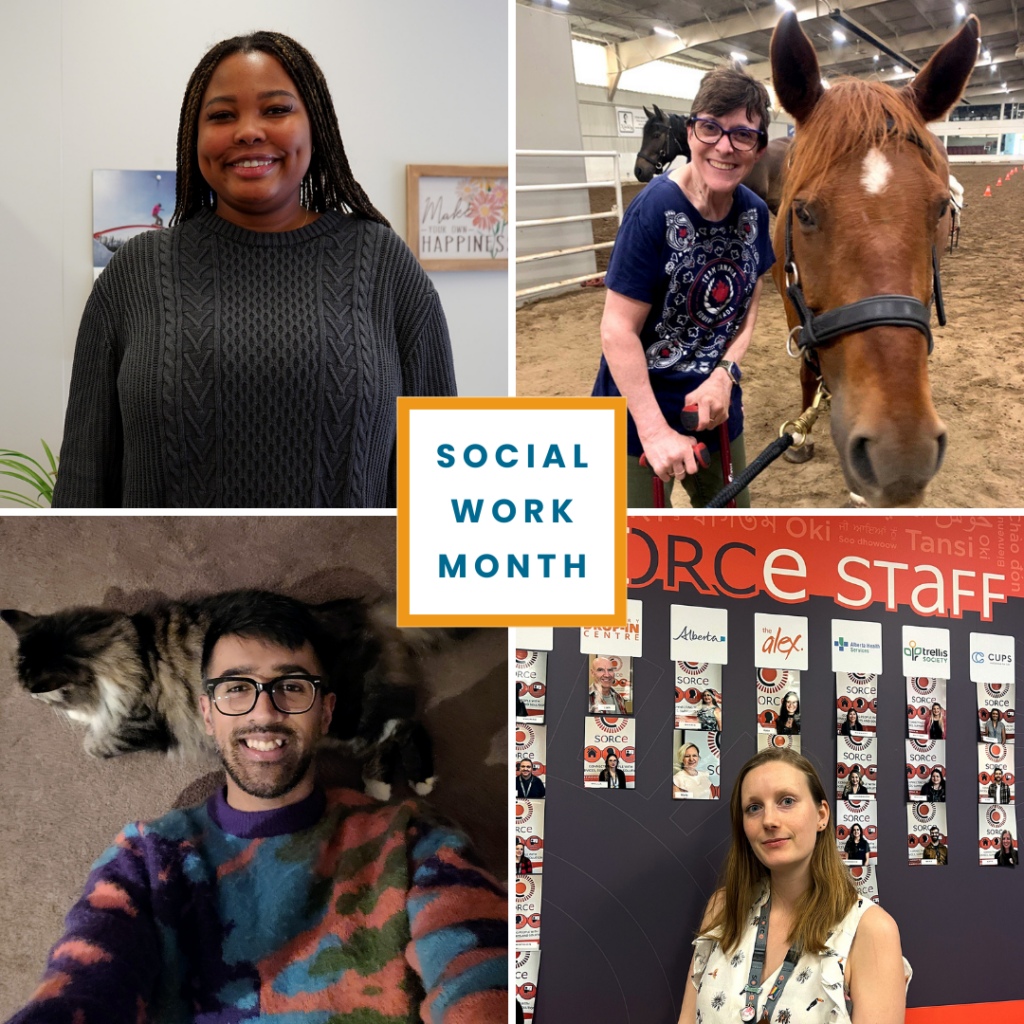March is Social Work Month, the perfect time to spotlight some of the incredible social workers at DC who work in a variety of roles serving individuals and the community.
We spoke with Chipo, Maia, Romit and Michelle about why they chose to pursue social work, the kind of work they’re doing at DC and why social work matters.
(Answers have been edited for clarity and length)
Q: Why did you decide to pursue social work?
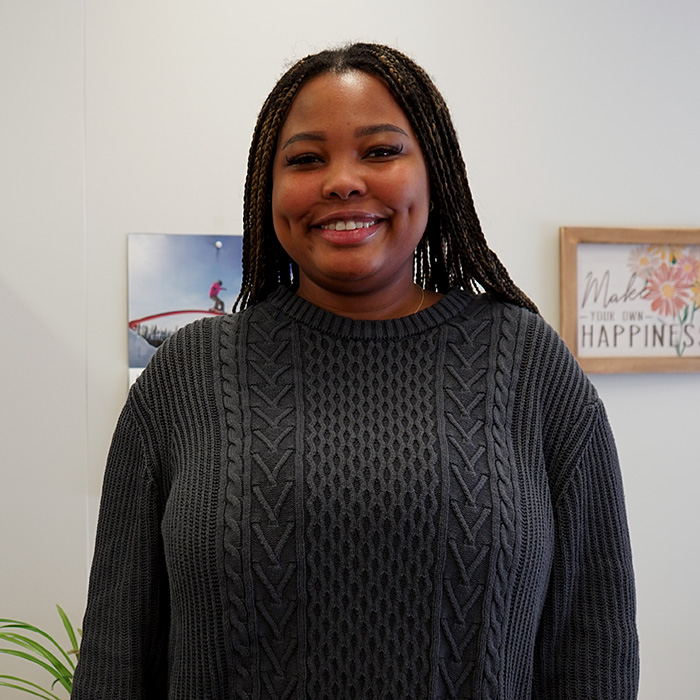
Chipo: From a young age, I was drawn to the idea of service and empathy, recognizing the power of human connection and support in overcoming life’s challenges. I realized that social work offered not just a profession, but a calling—a platform to merge my values with meaningful action. Ultimately, I got into social work because I believe in the inherent dignity and worth of every individual, and I am committed to working towards a more just and equitable society where everyone has the opportunity to thrive.
Maia: I got into social work because I wanted to be in a career where I could help people and make a difference. I initially went to school for linguistics thinking I’d be a speech pathologist, but when I finished I realized I wasn’t that passionate about that so I looked at some other options and came across social work and it was a light bulb moment, like “oh I’ve always been interested in social justice and social issues and helping people.” Social work combined everything because it’s so broad.
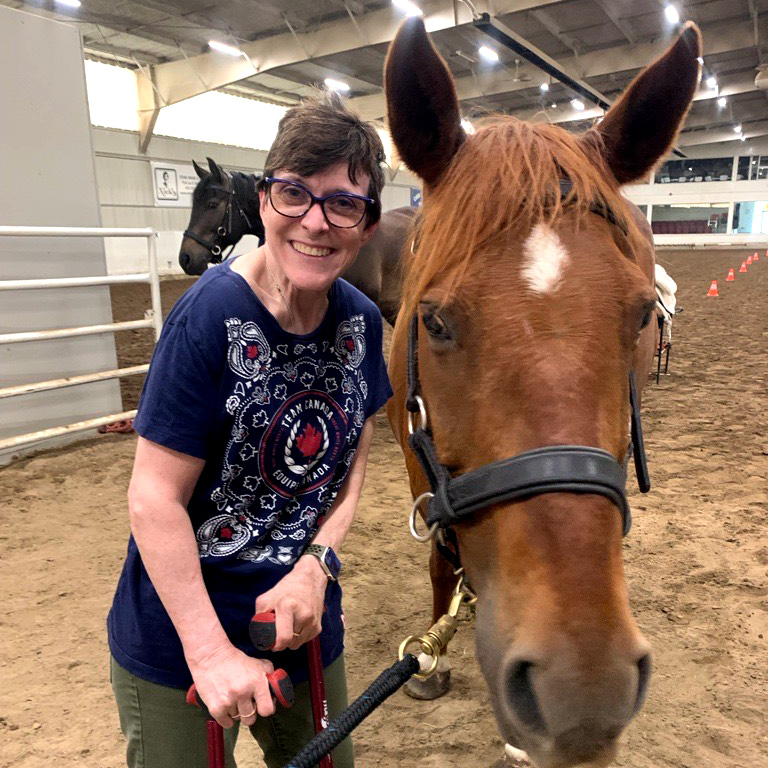
Michelle: If you asked me that question when I was a kid I would have said I would never be a social worker. Due to having a lifelong disability I was permanently fostered rather than adopted. Back then there were no financial supports for families who had biological or adopted kids with disabilities, so my parents permanently fostered me. I’ve had a lot of social workers. I was in a stable home with no huge issues so my file got passed around a lot. Most of my social workers didn’t really know who I was. Once I realized I didn’t have to work in child welfare, I looked at social work more seriously. I began by working in community rehabilitation with people with disabilities, particularly seniors. I loved it so much I did a Master of Social Work in Gerontology – the study of aging.
Romit: I used to work in oil and gas. Software engineering was essentially my job. After experiencing and recovering from a bout of anxiety and going on a wellness journey, I felt that what I was doing didn’t mean anything to me anymore. I started volunteering on Distress Centre’s crisis lines. After doing that for a good six months, I realized I needed to switch to a different career. And so, I started as a Midnight Crisis Line Worker at DC and as casual and then full-time staff at Alpha House. Within that work I realized that to truly make a difference in a way that was meaningful to me, I needed to pursue a degree in social work.
Q: What kind of work are you doing now?
Chipo: I am employed as a crisis counsellor at DC, where I provide support to individuals facing various crises. My role involves working with diverse populations, offering immediate assistance and guidance to those navigating difficult circumstances. Whether it’s providing emotional support to someone in distress, offering resources to individuals experiencing mental health challenges, or assisting those grappling with relationship issues, I am dedicated to being a compassionate and reliable presence during times of crisis. Every day, I am honoured to play a role in helping others navigate their challenges and move towards healing and resilience.
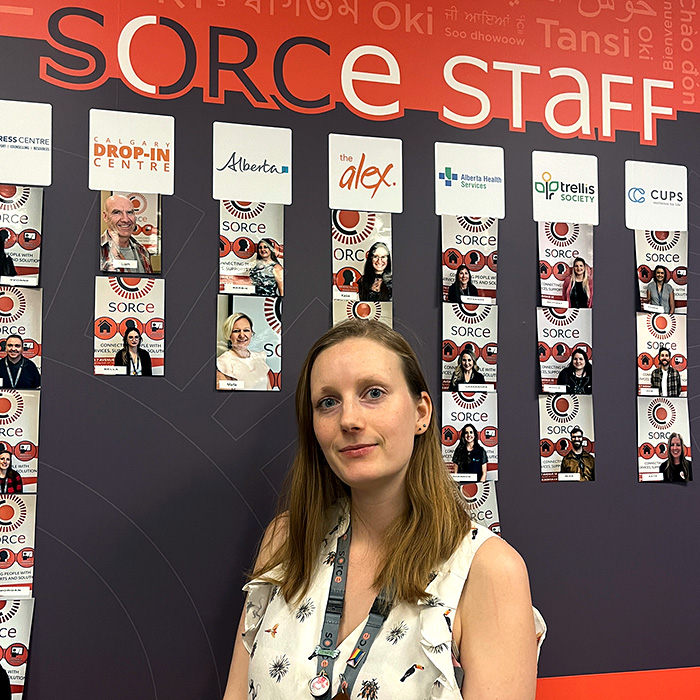
Maia: I’m working with the Coordinated Entry team at SORCe in the communications hub as a system navigator and resource specialist. I oversee and assist people in the hub when they come in to use the computers and phones to work on different goals like income, housing, accessing social services, and communicating with friends and family. I also help them navigate the system and figure out which resources are out there for them and their goals and issues.
Michelle: 211 Seniors Specialist at DC. For years I was an outreach worker doing home visits and such. Then my agency started working collaboratively with Distress Centre. Chat staff took the calls as they came into the centre and I did any follow up calls. We worked that way for about 4 years. Then the opportunity came to try for the 211 Seniors Specialist and luckily I got it. Now I get to combine the knowledge I gained while doing outreach and help seniors without trudging in the snow!
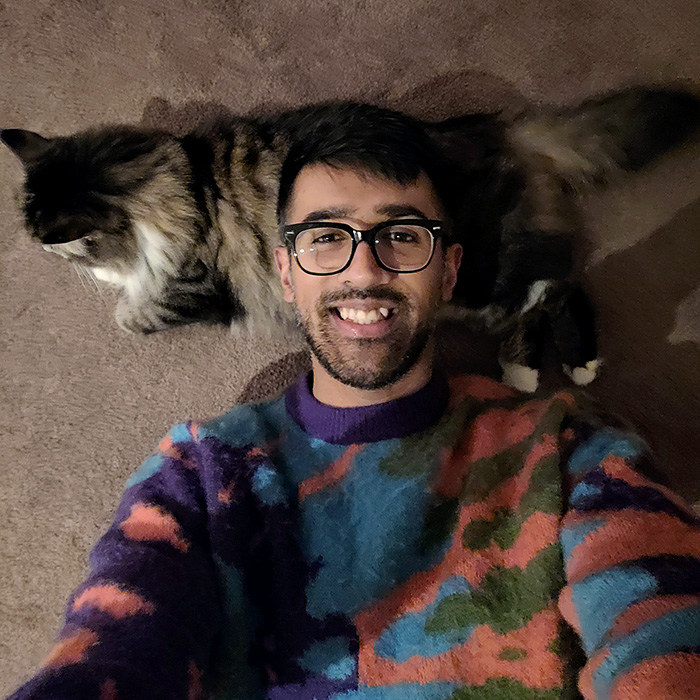
Romit: I’m a Housing Strategist with the Coordinated Entry team at SORCe. A lot of the housing that’s available to folks that are going through homelessness is behind a process called Coordinated Access and Assessments (CAA). I do the assessments for that. And then for people who are not likely to get housed through CAA, I help them navigate other processes.
Q: What do you like the most about social work?
Chipo: What I appreciate most about social work is the opportunity to make a meaningful difference in people’s lives. Social work is a profession that allows me to directly engage with individuals, families, and communities during their most vulnerable moments and offer support, empowerment, and hope. What I also like is the opportunity it provides to foster connection, promote well-being, and advocate for social justice in ways that truly make a difference in people’s lives even if it is one person at a time.
Michelle: Helping people who are the most marginalized and isolated. I always joke that I have ‘street cred’ with seniors because I know how difficult daily life can be when it’s harder to get around. Especially if you don’t have friends or family close by. I don’t always have an easy answer for the callers and sometimes they get angry but way more callers seem to feel validated when I say I understand their struggles and that makes it totally worth it to me.
Romit: I like the original idea of social work, which is just to help people who need help. And I know social work is not the only profession that does that, but I think it’s at the core of it.
Q: What is something you wish people understood about social work?
Chipo: One thing I wish more people understood is the depth and complexity of the profession. While it’s often associated with providing direct services to individuals in need, such as counselling or case management, social work encompasses a much broader scope. Social workers are trained to address systemic issues and advocate for social justice. They work tirelessly to dismantle barriers to equality and promote inclusivity and equity for all individuals and communities.
Maia: It’s very multi-faceted. It’s very broad. I think when most people think about social work, they think of a lot of the in-person, one-on-one interactions, like counselling or children’s services. But there is a lot more than that. It’s also community building, working on policies and trying to make larger systematic changes.
Michelle: That it’s actually a profession! A lot of people out there don’t really recognize our skill level as a profession. Nurses? sure! Counsellors, yup! But I bet if you asked someone on the street what social workers do, I’m not sure people would be able to answer so easily. The thing is social work is so varied it can look totally different depending on the setting where someone is practicing.
Romit: When you go to school for social work, you learn the history of it and the damage it has done to a lot of folks. I’m talking about events like the 60s Scoop. But there are also current injustices, such as in the criminal justice sector or homeless sector – damage is still being done. We carry that knowledge with us from our education and try to find ways to push back against it, which isn’t easy, but that advocacy and social justice work is critical to what it means to be a social worker.
Want to start your journey with Distress Centre? View current job postings on our Careers page or apply to become a volunteer.

